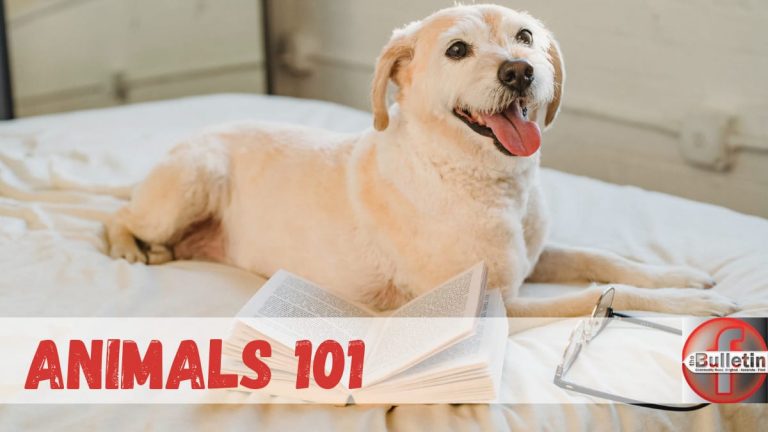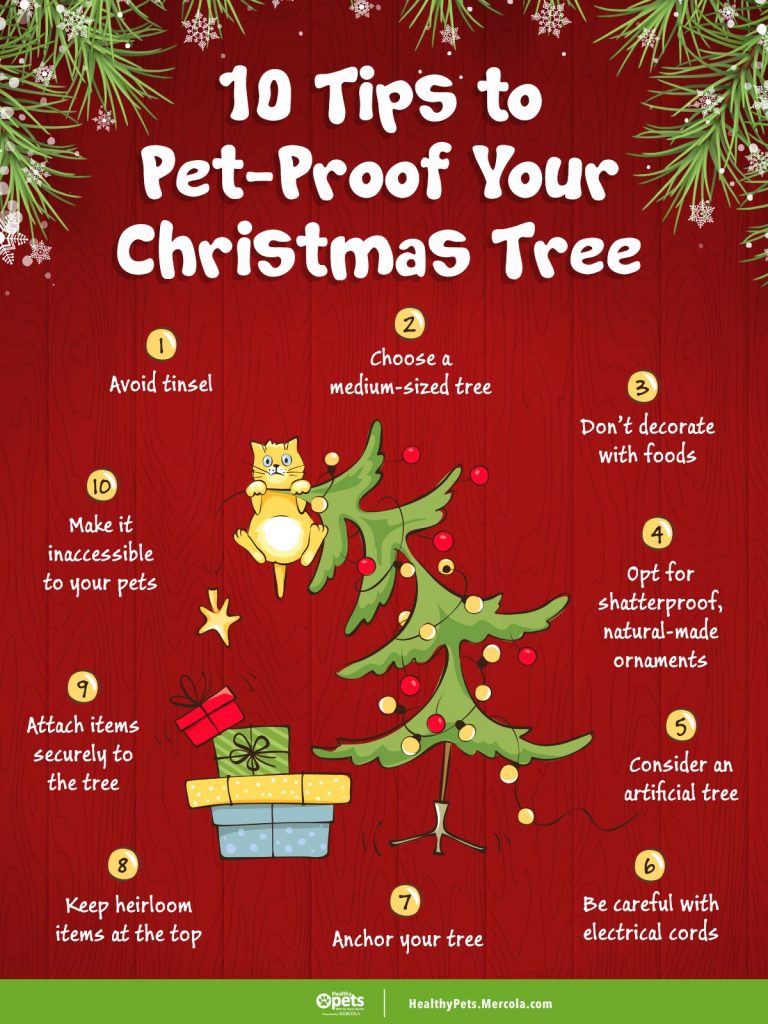
ANIMALS 101 – FESTIVITIES DURING THE CHRISTMAS HOLIDAY MAY POSE DIFFERENT DANGERS FOR YOUR PETS.
Christmas is almost here and you can feel the excitement in the air. A Christmas tree is a holiday staple for many homes, but are you aware of the dangers it poses for pets? Below are some tips to consider for the holidays.
PET-PROOF YOUR CHRISMAS TREE (Dr Karen Becker)
DITCH THE TINSEL —Tinsel, with its light-catching abilities, is an attractive toy for cats and dogs, who may swallow it and end up with an obstructed digestive tract. Choose other forms of garland instead, preferably those made from natural materials and wrapped snugly around your tree.
CHOOSE A MEDIUM-SIZED TREE — An unanchored Christmas tree is an accident waiting to happen if you have pets. The taller the tree is, the greater the chance it has of getting knocked over by frisky pets. A medium-sized (1.5 m) tree instead of taller varieties for households with pets, is recommended.
DON’T DECORATE WITH FOOD — It may sound like a great idea to decorate your tree with candy canes and gingerbread cookies, but what you’re really creating is a temptation for your pet – one that could potentially make him sick or cause him to knock over the tree. Even seemingly innocent food items, like popcorn garland, should be avoided, as your pet may ingest the string along with the popcorn.
CHOOSE SHATTER-PROOF ORNAMENTS MADE WITH NATURAL MATERIALS — Glass ornaments are easily breakable by pets, especially if they’re on low-hanging branches. Shatter-proof ornaments should take priority if you have pets, to avoid the risk of scratches and cuts. Look for those made of natural materials, such as wool, silk or wood.
CONSIDER AN ARTIFICIAL TREE — Your dog or cat may be drawn to the pine needles of a real Christmas tree and could get an upset stomach if he ingests too many. Your cat may also be inclined to climb the real tree trunk, even more so than one on an artificial tree, which could cause it to fall over. Wrapping the trunk in foil may help prevent this. Real trees also pose the problem of standing water, which breeds bacteria. If your pet drinks it, he could suffer from nausea or diarrhea. If you do have a real tree, be sure the water basin comes with a cover.
ANCHOR YOUR TREE — The best way to ensure your Christmas tree doesn’t fall over if your pets decide to get busy is to anchor it to a wall or even the ceiling. A strong, sturdy base will also help to prevent mishaps.
ATTACH ORNAMENTS SECURELY TO THE TREE — If you’re using metal hooks, be sure to form them securely around the branches. You may even want to ditch metal hooks entirely (they could be swallowed by your pet) in favour of twine or string that can be fastened to branches.
BE CAREFUL WITH ELECTRICAL CORDS — Long extension cords or other electrical wires pose the risk of electrocution and burns if chewed and may also pose a risk of entanglement. Remove the temptation for your pet to use cords as a plaything by using short extension cords, rolling up any slack, and taping any loose sections down to the floor or wall. There are also extension cords available that will shut off if they’re damaged — a must for pet owners.
PLACE HEIRLOOM ORNAMENTS AT THE TOP — For ornaments that were expensive or those that hold sentimental value, place them out of the reach of your pets.
MAKE YOUR TREE INACCESSIBLE TO PETS — If your pets are particularly persistent when it comes to exploring the Christmas tree, consider making it completely inaccessible to your pets. You may use a baby gate to keep your pet away, put the tree on an elevated stand (which will make it out of the reach of small pets and puppies), or place it in a room where your pet is not allowed.

CHRISTMAS FOOD TIPS (Eendedam Animal Clinic)
- Don’t feed your pets chocolate or other caffeinated food and drinks that contain the substance theobromine. This is toxic to cats and dogs!
- Don’t feed any bones, especially small and cooked ones which can cause obstructions in the esophagus or intestines, cause severe constipation or dental emergencies.
- Don’t feed fatty foods which can cause stomach upsets or other severe conditions.
- Safe, healthy snacks include fruits like apples, strawberries, watermelon, bananas, and blueberries while veggies like carrots, broccoli, peas, and butternut are safe treats to feed your pets.
- Make sure your guests know the food-rules for your pets!
Also read: ANIMALS 101 – FIX YOUR PET, FIX THE MATH
MORE TIPS
- Never leave your pets alone for more than 12 hours without someone checking in on them.
- Keep your pets warm when it is cold and cool when it is hot.
- Supervise play with toys, especially new toys.
- If you are having guests over or young children, remember that it can be overwhelming for your pets. Create a safe pet-only space where your pet can feel secure and tell your kids and guests, not to disturb them in that space.
- Save your veterinarian’s emergency number in advance and make sure you know which trusted veterinarians are available and when.
- Wrapping paper, bows, and ribbons can cause intestinal blockages if your pets ingest them. This can cause serious illness and death.
- If you are traveling with your pets, follow these safety tips. You can also take something familiar (bed or toy) with you to help comfort them.
- If you travel and see an animal injured or in distress, please contact your nearest SPCA. You can find your nearest SPCA on www.nspca.co.za.
- Prepare for firework festivities if you have a noise-phobic pet.
- Remember to not give animals as gifts!
This is a difficult time of the year for any animal welfare organization. The work is more with surrendered, stray, and abandoned animals, and the funds are low. Please consider donating to a reputable and financially transparent organization. Don’t forget about the rescuers and staff doing the work!
Keep your pets safe and have a blessed festive season!
WHEN YOU KNOW BETTER, DO BETTER!